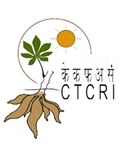
CSIRO Publishing recently launched their latest publication entitled “GENETICALLY MODIFIED CROPS IN ASIA PACIFIC”. The book has been edited by Govind T Gujar, AGRIBIOSYS, New Delhi, Y Andi Trisyono, University of Gadjah Mada, Indonesia, Mao Chen, APAC Bayer Crop Science, Singapore.
About the Book
It’s a comprehensive reference on the progress of GM crop adoption across the Asia Pacific region.
Meeting future food needs without compromising environmental integrity is a central challenge for agriculture globally but especially for the Asia Pacific region – where 60% of the global population, including some of the world’s poorest, live on only 30% of the land mass. To guarantee the food security of this and other regions, growers worldwide are rapidly adopting genetically modified (GM) crops as the forerunner to protect against many biotic and abiotic stresses. Asia Pacific countries play an important role in this, with India, China and Pakistan appearing in the top 10 countries with acreage of GM crops, primarily devoted to Bt cotton.
Genetically Modified Crops in Asia Pacific discusses the progress of GM crop adoption across the Asia Pacific region over the past two decades, including research, development, adoption and sustainability, as well as the cultivation of insect resistant Bt brinjal, drought-tolerant sugarcane, late blight resistant potato and biotech rice more specific to this region. Regulatory efforts of the Asia Pacific member nations to ensure the safety of GM crops to both humans and the environment are also outlined to provide impetus in other countries initiating biotech crops. The authors also probe into some aspects of gene editing and nanobiotechnology to expand the scope into next generation GM crops, including the potential to grow crops in acidic soil, reduce methane production, remove poisonous elements from plants and improve overall nutritional quality.
The book provides a comprehensive reference not only for academics, researchers and private sectors in crop systems but also policy makers in the Asia Pacific region. Beyond this region, readers will benefit from understanding how GM crops have been integrated into many different countries and, in particular, the effects of the take-up of GM cropping systems by farmers with different socioeconomic backgrounds.
Main Features
-
Explains the different GM agricultural systems and the status of GM crop planting in Asia Pacific,
-
Describes the regulatory and commercialisation challenges that developed and developing Asia Pacific countries face,
-
Explains the impacts of GM crops on ecology, food security and economic sustainability,
-
Gives case studies on the adoption of GM crops and farmers' welfare, and
-
Provides insight into the future of GM crops and future technologies relevant to genome editing for pest management.
Contents of the Book
-
Biotech/genetically modified crops in Asia Pacific: a way forward
-
Economic and environmental impact of genetically modified crops in Asia Pacific
-
Development and commercialisation of Bt cotton in India
-
Insect resistance management for Bt cotton in India
-
Twenty years of successful Bt cotton production in Australia
-
Advances in managing insect resistance to Bt cotton in China
-
Bt cotton in Pakistan
-
Transgenic maize and its potential commercialisation in China
-
Bringing Bt eggplant to resource-poor farmers in Bangladesh and the Philippines
-
Adoption and advances in genetically modified oilseed crops in Australia
-
Bioefficacy testing of Bt corn against Asian corn borer in the Philippines
-
Insect resistance management of Bt corn in the Philippines
-
Socioeconomic and environmental impacts of GM corn in the ASEAN: the case of the Philippines
-
Biosafety management for genetically modified crops in Vietnam: from policy to practice
-
Biotechnology and its regulatory system in Japan
Know the Authors
GT Gujar has an MS and PhD in Entomology from the IARI and was a Marie Curie EU postdoctoral fellow in UK and Germany. He is currently associated with AGRIBIOSYS, New Delhi.
Dr. G.T. Gujar with his book.
Y Andi Trisyono is a Professor of Entomology in the Faculty of Agriculture at the University of Gadjah Mada in Indonesia. He earned his MS and PhD in Entomology from Michigan State University and University of Missouri, respectively.
Mao Chen has a PhD in Entomology from Zhejiang University, Hangzhou, China, and was a postdoctoral researcher at Cornell University focusing on risk assessments for biotech crops. He is currently a Science Fellow and working as Head of market development field-testing at APAC Bayer Crop Science.
Anyone interested may procure the book online from CABI bookstore:
https://www.cabi.org/bookshop/book/9781789248418/











